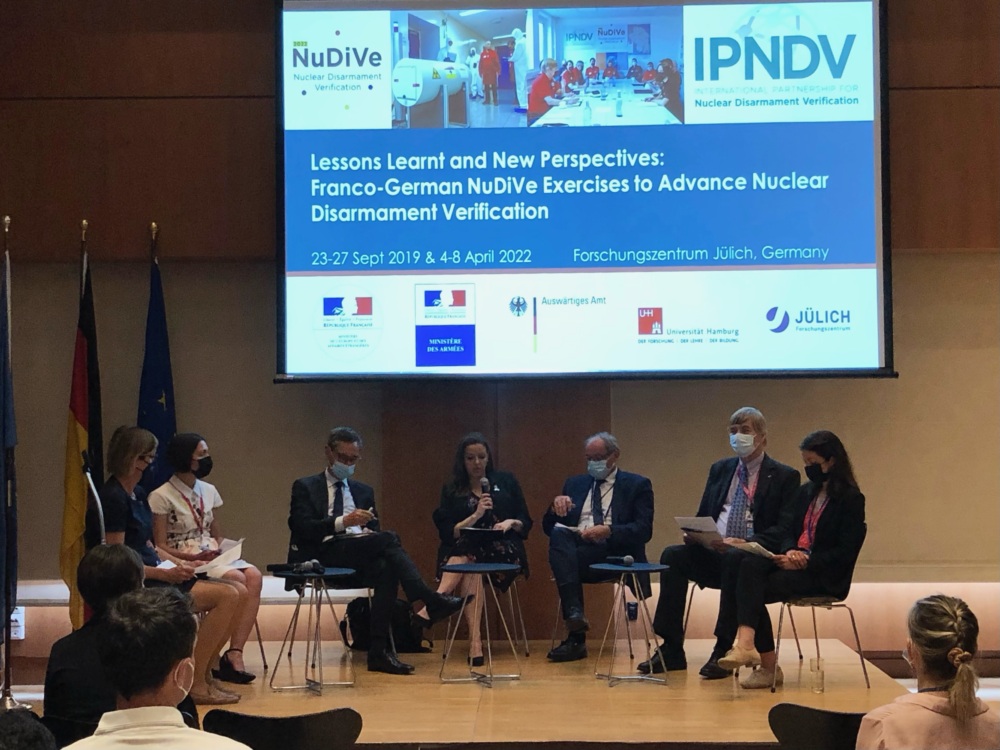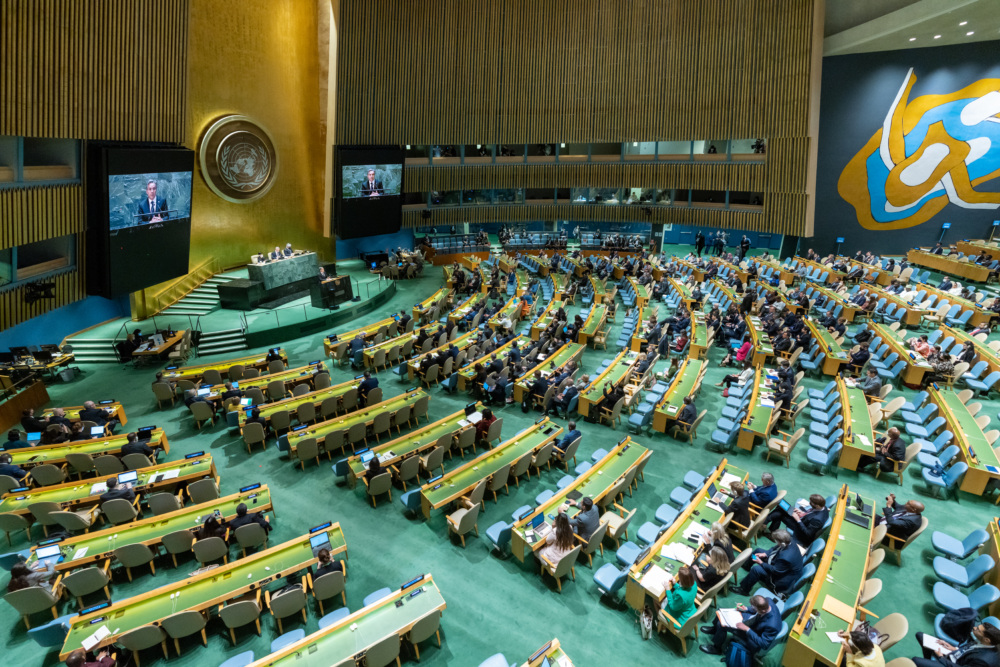
Jessica Bufford
Senior Program Officer, Nuclear Materials Security
Atomic Pulse
Against a challenging backdrop for near-term disarmament efforts, diplomats and experts who met in New York last month to review implementation of the Treaty on the Nonproliferation of Nuclear Weapons (NPT) had an opportunity to learn more about a groundbreaking partnership working to pave the way for future progress on the reduction and elimination of nuclear weapons.
Members of the International Partnership on Disarmament Verification (IPNDV)—a coalition of 25 countries led by the Nuclear Threat Initiative and the U.S. Department of State—shared their work to develop the technologies, procedures, and capacities needed for verifying nuclear warhead disarmament. During an event on the margins of the NPT Review Conference, they described a hands-on Nuclear Disarmament Verification exercise (NuDiVe) that brought policy and technical experts together in 2019 and again earlier this year that sought to answer the question: Can a nuclear warhead be dismantled in a way that protects the country’s sensitive nuclear technologies and provides confidence to the international community that the nuclear material has actually been removed?
While some countries with nuclear weapons have dismantled nuclear warheads voluntarily over the years, there has never been a multilateral effort to verify the process of taking apart a nuclear warhead, removing the nuclear material contained within, and ultimately disposing of the material. It is important for governments to develop this capacity because the NPT, which entered into force in 1970, commits all parties to pursue general and complete disarmament. To credibly do that in a way that provides adequate assurances, the dismantlement of nuclear weapons should be internationally verified. The NuDiVe exercise simulated an inspection of a nuclear warhead dismantlement conducted by a fictional host country, and participants were divided into host and inspector teams that worked together to maintain the chain of custody over the nuclear materials throughout the dismantlement process. The exercise demonstrated that it is possible to engage both nuclear weapon states and non-nuclear weapon states in creating a disarmament process with credible and concrete verification measures.
At the NPT Review Conference side event about NuDiVe, Ambassador Thomas Goebel of Germany and Ambassador Yann Hwang of France, the countries that sponsored NuDiVe, said it was essential to furthering the goals of the NPT.
Dr. Irmgard Niemeyer, head of the Nuclear Safeguards and Security Division at Germany’s Forschungszentrum Jülich research institution and host of the exercise, explained how setting NuDiVe in a radiation laboratory made it realistic and allowed participants to test technologies, procedures, and processes related to dismantling a nuclear warhead by removing simulated nuclear material in real time. Steiner Hoibraten, leader of the NuDiVe inspector team, agreed that running the exercise in-person made it more effective, saying the lessons learned from NuDiVe couldn’t be replicated behind a desk and that he found that testing the technology in a hands-on environment revealed unforeseen challenges in the process, like time management. Elaine Kanasewich, who participated as both a member of the host team as well as the leader of the inspector team, noted the high degree of trust that is needed to implement successful disarmament verification. The international, multicultural and multilateral character of the partnership and the diversity among participants at NuDiVe enhances credibility of the outcomes of the exercise.
IPNDV members also shared their interest in moving NuDiVe’s work forward by exploring the disposal of nuclear materials, conducting verification in hostile environments, and using a systems approach to understand verification of large numbers of warheads.
Alexandra Bell, the U.S. Deputy Assistant Secretary in the Bureau of Arms Control, Verification, and Compliance, said the success of NuDiVe’s in-person realistic exercises has caught the attention of many in the international community, who are increasingly appreciating the value of developing and understanding verification concepts before pursuing formal treaty regimes. There’s no question that creating a comprehensive disarmament verification regime will take time, but with the help of the NuDiVe exercises, the IPNDV is building a strong foundation of expertise and trust in mechanisms for nuclear disarmament verification and generating momentum towards a safer world.
Sign up for our newsletter to get the latest on nuclear and biological threats.
As officials prepare to meet in Vienna for the 2023 PrepCom, they should consider some of the key themes that have emerged from NTI’s Global Enterprise to Strengthen Non-Proliferation and Disarmament.
Considering the current nuclear landscape, the power of Christopher Nolan’s film and the moral and ethical questions raised by J. Robert Oppenheimer’s work, movie viewers may be motivated to act to advocate for a world without nuclear weapons. But how?
If you want to learn more about Oppenheimer’s bomb and what we must do to protect the world today and for future generations, NTI’s online library is the perfect place to go.



